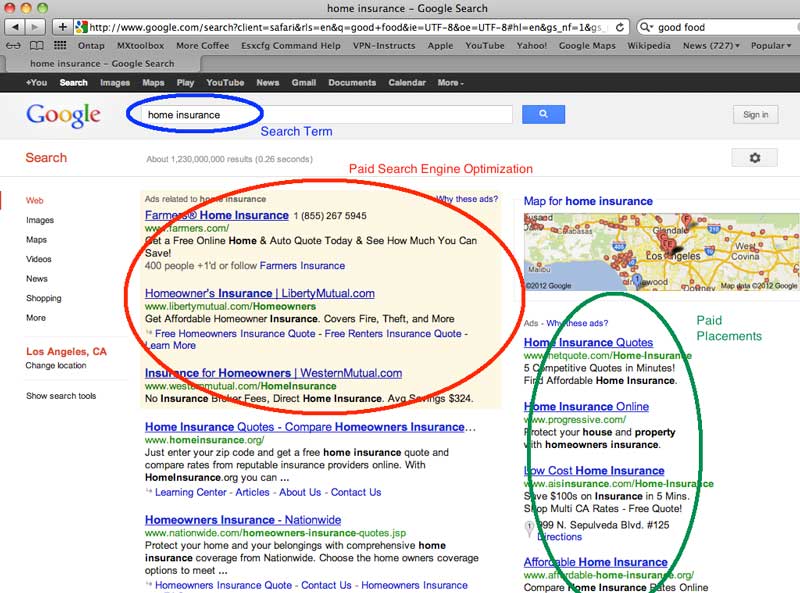I listened to a marketing lecture today which (among other things) described how Google generates revenue from its default search engine website. This is the traditional search page where you enter your search term(s) and click the search button.
The result set includes:
(a) Paid Placements — the advertisements that appear on your right.
(b) Paid Search Engine Optimization — the search results which have paid extra for a superior placement.
(c) Organic Search — the search results which have not compensated Google.
In the screen shot, (a) is show circled in green and (b) is shown circled in red. The problem is how to avoid having search users [like me] ignore the paid portions and use only the organic search? Because, in reality, Google does not get paid for presenting the advertisements. Rather, it gets paid when users click through the links. But, apparently, not everyone is like me (shock). And, 27% of the time users do click one of the paid links, instead of using the organic search results.
How does a potential advertiser figure out what search words should be optimized to their benefit? Well, they could determine which keywords are already bringing users to their website, and optimize these search terms so that they appear earlier. Secondly, they could use the free tool that Google provides online. For instance, if I want to know how many people search for the word “chocolate” in the USA, I could link to the following URL:
http://www.google.com/trends/?q=chocolate&ctab=0&geo=us&geor=all&date=all
Notice that using this URL, I can drill down and focus into specific geographical regions. I can also tell when this term is more popular. It seems that there is a peak for chocolate searches on Valentines Day each year.
